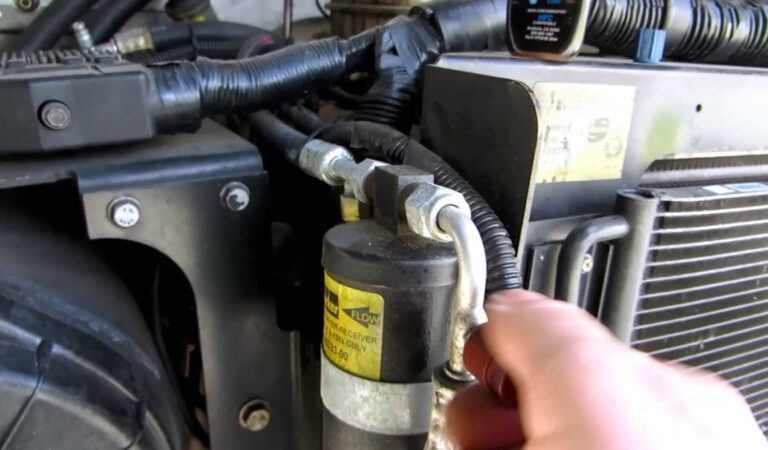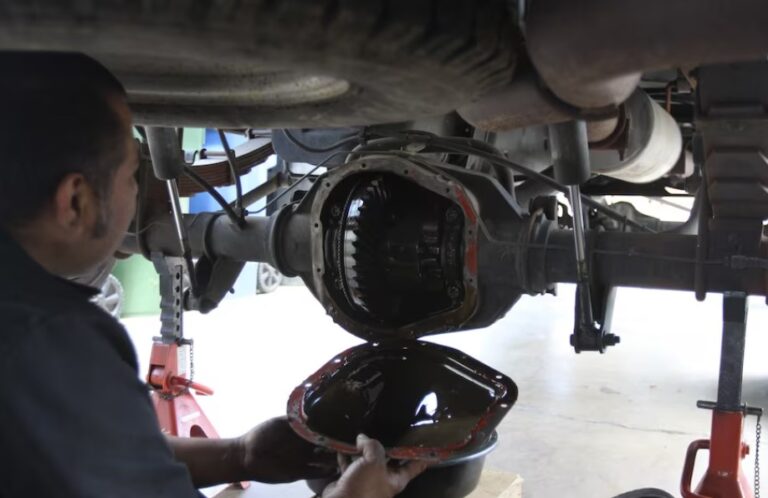Ford E-450 Motorhome Gas Mileage [A Complete Breakdown]
Exploring the vastness of the open road in a Ford E-450 Motorhome is a dream for many adventurers. This robust and reliable vehicle, however, prompts questions about its gas mileage. Understanding the Ford E-450 Motorhome Gas Mileage is crucial for planning long trips and managing travel expenses. This comprehensive guide delves into the various aspects that influence fuel efficiency, providing travelers with essential insights.
Key Takeaways
- Ford E-450 Motorhome offers a balance between comfort and fuel efficiency.
- Factors such as weight, driving habits, and maintenance impact gas mileage.
- Technological advancements have improved fuel economy in newer models.
- Comparing models and configurations helps in making an informed decision.
Ford E-450 Motorhome Gas Mileage
The Ford E-450 Motorhome typically averages around 8 to 10 miles per gallon (MPG). This figure, however, can vary based on several factors, including driving conditions, motorhome load, and maintenance. It’s important to note that these vehicles prioritize space and comfort over fuel economy.

Factors Affecting Gas Mileage
- Weight and Size: The E-450’s large size and weight significantly influence its fuel consumption.
- Driving Habits: Speed and driving style play a crucial role in gas mileage.
- Maintenance: Regular maintenance ensures optimal engine performance and fuel efficiency.
Technological Advancements
Recent advancements in technology have led to improvements in the Ford E-450’s fuel efficiency. Newer models boast better engine designs and lighter materials, contributing to enhanced MPG.
Engine Innovations
- Newer engines feature improved combustion efficiency.
- Advanced transmission systems contribute to better fuel economy.
Aerodynamic Design
- Streamlined designs reduce air resistance.
- Lighter materials decrease the overall weight, positively impacting MPG.
Model Comparisons
Comparing different models of the Ford E-450 Motorhome is vital for understanding gas mileage variations. Each model comes with unique features and specifications that affect fuel efficiency.
Older vs. Newer Models
- Older models tend to have lower MPG due to dated technology.
- Newer models benefit from fuel-saving technologies and design improvements.
Configuration Variations
- Different configurations offer varying levels of fuel efficiency.
- Customizations and added features can impact the motorhome’s gas mileage.
Driving Tips for Better Gas Mileage
Adopting certain driving habits can significantly improve the Ford E-450’s gas mileage. These tips not only save fuel but also contribute to the longevity of the motorhome.
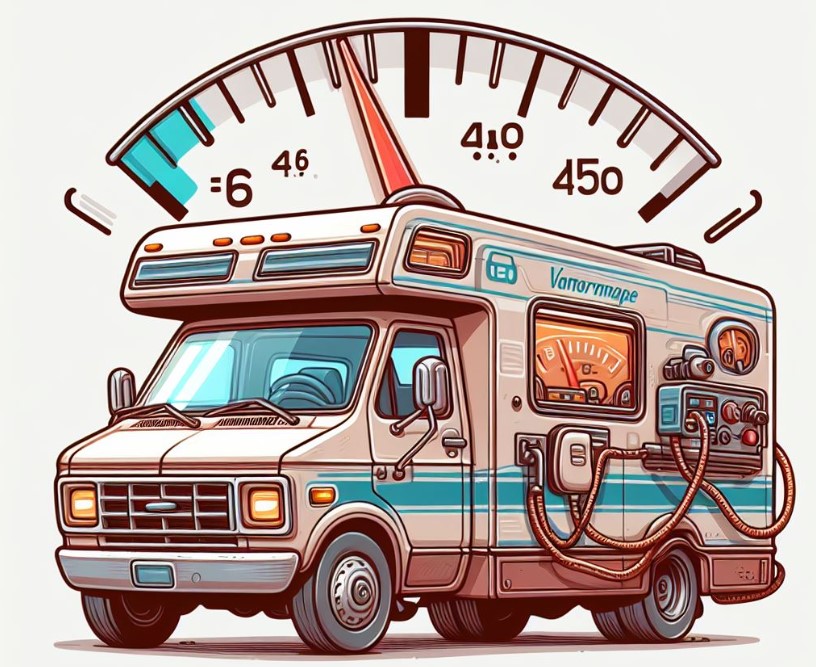
Efficient Driving Practices
- Maintaining steady speeds.
- Avoiding unnecessary idling and quick accelerations.
Regular Maintenance
- Keeping the engine well-maintained.
- Ensuring proper tire pressure for optimal performance.
Fuel Economy and Environmental Impact
Understanding the environmental impact of the Ford E-450 Motorhome is essential, especially in an era of growing environmental consciousness. The fuel economy of these vehicles directly correlates to their carbon footprint.
Emission Standards
- Adherence to emission standards is critical for reducing environmental impact.
- Newer models are designed to meet stringent emission regulations.
Alternative Fuel Options
- Exploring alternative fuels can reduce the environmental footprint.
- Some models are compatible with biofuels or hybrid technologies.
Cost Analysis
Analyzing the cost implications of the Ford E-450 Motorhome’s gas mileage helps in budgeting for trips. Fuel costs form a significant part of the overall expenses in motorhome travel.
Fuel Expense Estimation
- Calculating expected fuel costs based on average MPG and trip length.
- Considering fluctuating fuel prices in budget planning.
Long-Term Cost Benefits
- Investing in fuel-efficient models can result in long-term savings.
- Proper maintenance can prolong vehicle life and enhance fuel economy.
How Does Vehicle Weight Affect Motorhome Fuel Efficiency?
Understanding the impact of vehicle weight on motorhome fuel efficiency is crucial for potential owners. Heavier vehicles, like motorhomes, naturally consume more fuel due to the increased energy required to move the larger mass.
This is particularly evident in larger motorhome models, where the added weight from amenities and storage significantly increases fuel consumption.
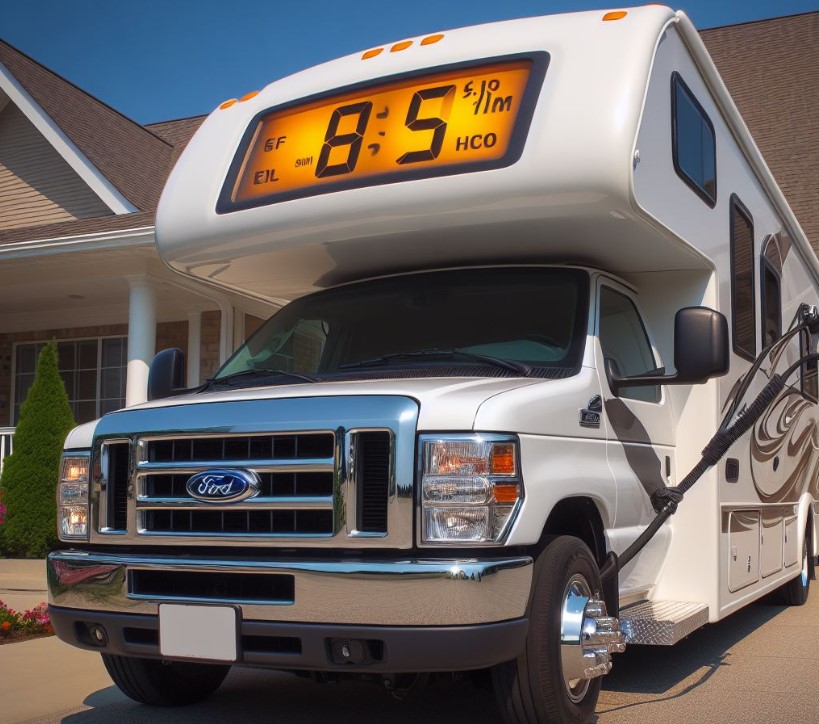
Moreover, the weight distribution within the motorhome plays a vital role. Unevenly distributed weight can cause the engine to work harder, leading to reduced fuel efficiency.
For those considering a motorhome purchase, it’s essential to balance the desire for spaciousness and luxury features with the implications on fuel consumption. Regularly assessing and managing the load can help mitigate excessive fuel usage, making trips more economical.
What Are the Best Practices for Maintaining Motorhome Engines?
Regular maintenance of motorhome engines is not just about prolonging the vehicle’s life; it’s also about improving fuel efficiency. A well-maintained engine runs more efficiently, consuming less fuel.
This includes routine oil changes, air filter replacements, and ensuring the fuel system is clean and functioning correctly. Neglecting these basic maintenance tasks can lead to a decrease in MPG, as the engine struggles to perform optimally.
In addition to regular servicing, using the correct type of fuel and oil recommended by the manufacturer can make a significant difference.
Owners should be vigilant about any signs of engine trouble, such as unusual noises or a decrease in performance, as these can be early indicators of issues that might affect fuel efficiency. Timely intervention and repairs are key to maintaining an efficient and reliable motorhome engine.
What Role Does Aerodynamics Play in Motorhome Fuel Consumption?
Aerodynamics is a critical factor in determining a motorhome’s fuel consumption. The larger and boxier the vehicle, the more resistance it encounters when moving, which requires more fuel.
Modern motorhome designs often incorporate features to reduce this drag, such as streamlined shapes and integrated components that minimize wind resistance.

Improvements in aerodynamics can lead to noticeable gains in fuel efficiency. For those owning older models, there are aftermarket products available that can help reduce drag, such as aerodynamic skirts or wind deflectors.
These modifications can be a cost-effective way to enhance fuel efficiency, especially for those who use their motorhomes for frequent or long-distance travel.
Can Driving Habits Influence Motorhome Fuel Economy?
Driving habits significantly influence the fuel economy of a motorhome. Aggressive driving, including rapid acceleration and hard braking, can lead to higher fuel consumption.
Maintaining a steady speed, especially on highways, allows the motorhome to operate more efficiently. Cruise control can be a useful tool in maintaining consistent speed and reducing fuel usage.
Planning routes to avoid congested areas and times can also save fuel. Stop-and-go traffic forces the motorhome to work harder, increasing fuel consumption.
By anticipating and adapting to road conditions, drivers can significantly improve their vehicle’s fuel efficiency, making their journey more economical and environmentally friendly.
How Does Tire Pressure Affect Motorhome Gas Mileage?
Tire pressure is a frequently overlooked aspect that can substantially impact motorhome gas mileage. Properly inflated tires reduce rolling resistance, which in turn improves fuel efficiency. Under-inflated tires create more drag on the motorhome, forcing the engine to expend more energy and thus consume more fuel.
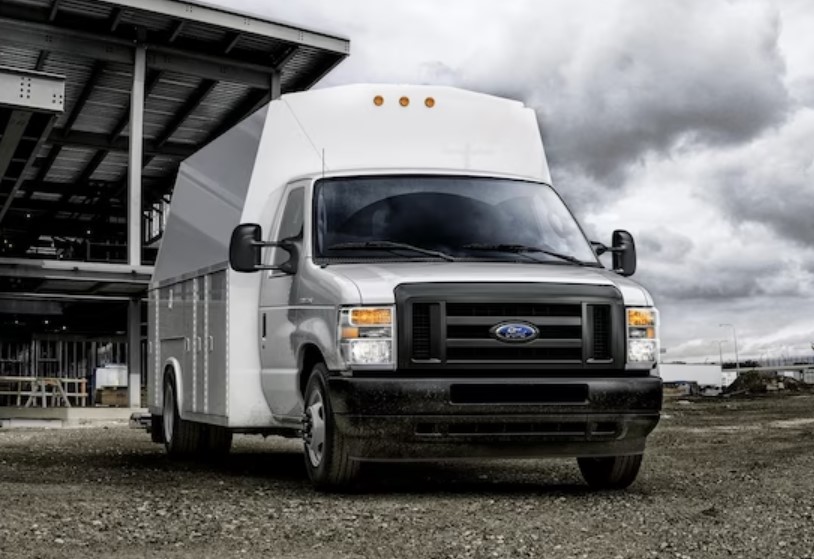
Regularly checking and maintaining the correct tire pressure according to the manufacturer’s specifications is a simple yet effective way to enhance gas mileage.
This not only contributes to fuel economy but also ensures better handling and safety of the vehicle. Motorhome owners should make tire pressure checks a part of their routine maintenance schedule to ensure optimal performance and fuel efficiency.
Conclusion
The Ford E-450 Motorhome offers a unique blend of comfort and adventure. While its gas mileage might not compete with smaller vehicles, understanding and optimizing fuel efficiency can lead to more enjoyable and cost-effective travel.
Embracing technological advancements, adhering to maintenance schedules, and practicing efficient driving can significantly enhance the Ford E-450’s fuel economy. As we continue to explore the open roads, being mindful of our vehicle’s impact on both our wallets and the environment remains paramount.
Frequently Asked Questions
Is it more fuel-efficient to tow a car with a motorhome or drive it separately?
Towing a car can decrease a motorhome’s fuel efficiency due to increased weight and resistance. However, it might be more fuel-efficient than driving two separate vehicles, depending on the total distance and specific vehicle models.
Do aerodynamics play a role in a motorhome’s fuel consumption?
Yes, aerodynamics significantly impacts fuel consumption. Streamlined designs and features that reduce air resistance can lead to better fuel efficiency.
What kind of maintenance improves a motorhome’s gas mileage?
Regular maintenance such as oil changes, air filter replacements, and ensuring a clean and efficient fuel system can significantly improve a motorhome’s gas mileage.
How does vehicle weight impact motorhome fuel efficiency?
Heavier motorhomes consume more fuel due to the increased energy required to move a larger mass. Efficient weight management and distribution within the motorhome can improve fuel efficiency.

Welcome to the exhilarating world of Matt Rex, a professional car racer turned renowned vehicle enthusiast. Immerse yourself in his captivating blog as he shares heart-pounding adventures, expert reviews, and valuable insights on cars, trucks, jets, and more. Fuel your passion for speed and discover the beauty of vehicles through Matt’s engaging stories and meticulous expertise. Join the ever-growing community of enthusiasts who find inspiration and expert advice in Matt Rex’s blog—a digital hub where the thrill of speed meets the pursuit of knowledge.

